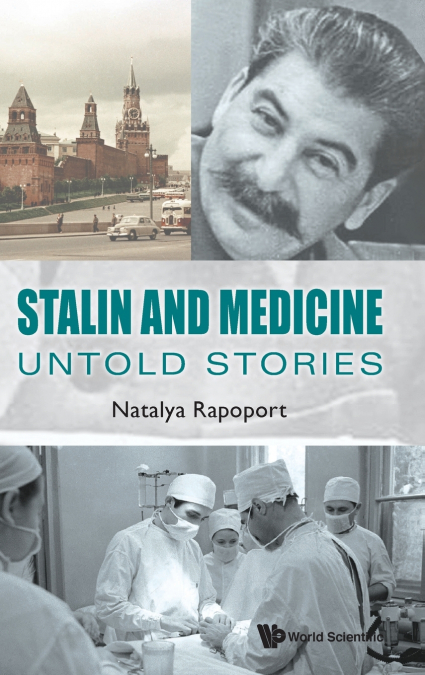
NATALYA RAPOPORT / RAPOPORT NATALYA
The manuscript treats the relationship between the totalitarian regime and science in a series of stories that describe the lives and times of outstanding medical scientists who represented the top of the Soviet intellectual elite of the 20th century.The narrations are based on first-hand accounts the author gained in conversations with her father, a world-renowned pathologist, and family friends, such as Nobel Prize physicist Lev Landau; a world-recognized physiologist Lina Stern; the pioneers of cancer biotherapy, Klyueva and Roskin; the "father" of the H-bomb, Andrey Sakharov; and the daughter of the Head of the Kremlin Hospital, Alexandra Kanel.The author describes Stalin's fabrication of the "Doctors' Plot"; the cases of Stalin's revenge on his doctors; the dramatic history of the Moscow Brain Institute; the history of an anti-plague vaccine and plague outbreak in the center of Moscow; and other events of historical significance. Ironically, Stalin's persecution of medical scientists and doctors bounced back and accelerated his death (hence the title, "Boomerang").The echo of Stalin's repression of medical doctors and scientists still resonates today, almost 70 years after Stalin's death, in the plight of medicine in current Russia.The real stories described in the book are absorbing and captivating. The reader gets a glimpse of the destructive behind-the-scene events associated with the intervention of a totalitarian government in medicine and medical science.Through the years, the BBC Witness program aired several interviews with the author's father and herself. Recently, The BBC News produced a short cartoon based on one of the author's stories, which enjoyed more than 250,000 viewers. David Remnick dedicated a chapter to Rapoport's family in his Pulitzer Prize awarded book, Lenin's Tomb.In the US, one series of the PBS Red Empire program was dedicated to the "Doctors' Plot" and partly shot in the author's Moscow apartment. A number of documentaries were also shot in this apartment by various European TV and movie programs. However, none of the stories described in the manuscript (with the exception of the edited version of the chapter on the "Doctors' Plot") has ever been published in English.